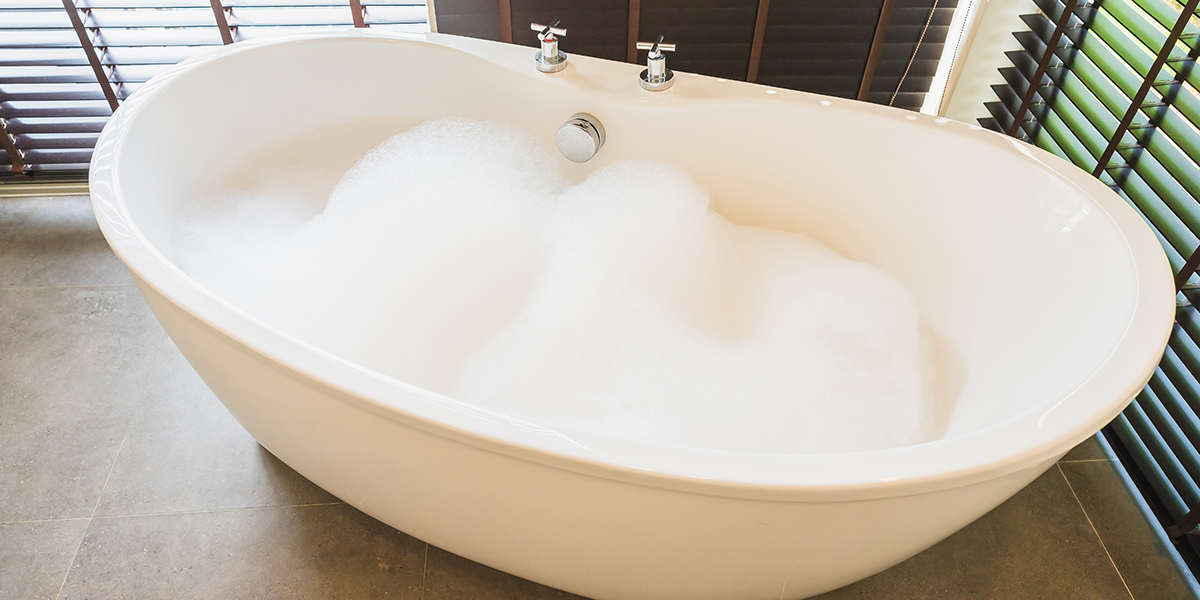Best Reasons Behind Waste Backflow in the Bathtub
Best Reasons Behind Waste Backflow in the Bathtub
Blog Article
What're your thoughts concerning Water Coming up Bathtub Drain?

Sewer backup in the bathtub can be an upsetting and unhygienic trouble for any home owner. Not only is it inconvenient, yet it likewise postures significant health and wellness risks and indicates underlying issues with the plumbing system. Recognizing why sewer is coming up through the bath tub is vital for taking suitable action to address the trouble efficiently.
Introduction to the Problem
Understanding the Trouble
When sewer starts backing up right into the tub, it's a clear indication of a problem with the drain system. The wastewater that ought to be flowing far from your home is rather locating its way back into your living space, which can cause substantial damages and health hazards.
Potential Causes
A number of variables can add to sewer backup in the bath tub. From clogs in the sewer line to problems with the plumbing infrastructure, recognizing the source is crucial for finding a solution.
Common Reasons for Sewer Back-up
Blockages in the Sewer Line
One of one of the most usual reasons for sewer back-up is a blockage in the drain line. This can occur as a result of the build-up of debris, oil, or international things in the pipes, protecting against correct circulation and triggering sewer to support right into your bath tub.
Tree Root Intrusion
Tree origins seeking moisture and nutrients can infiltrate sewage system lines with tiny cracks or joints. Over time, these origins can grow and expand, creating significant damages to the pipelines and causing sewer back-up problems.
Aging Facilities
Older homes might have outdated plumbing systems that are much more prone to rust, splits, and wear and tear. As pipes age, they end up being more prone to leakages and blockages, raising the chance of sewage backup occurrences.
Heavy Rainfall or Flooding
Throughout durations of heavy rainfall or flooding, the sewer system might come to be overwhelmed with excess water, causing backups and overflows. This can result in sewage supporting right into bath tubs and other components inside the home.
Wellness Risks Connected With Sewer Back-up
Contamination of Water
Sewer backup can infect the water in your home, presenting a major health risk to you and your household. Exposure to contaminated water can lead to gastrointestinal problems, skin infections, and various other ailments.
Spread of Disease
Sewage has harmful microorganisms, infections, and parasites that can create a range of diseases, including hepatitis, cholera, and gastroenteritis. Entering contact with sewer or contaminated surfaces puts you in jeopardy of infection.
Mold and mildew Development
Dampness from sewer back-up can develop suitable problems for mold growth in your home. Mold spores can exacerbate respiratory issues and cause allergic reactions in delicate people, making timely cleanup essential.
Indicators of Sewer Backup
Foul Odors
Unpleasant smells originating from drains or components, specifically in the shower room, may show sewage back-up problems. These smells are frequently solid and relentless, signifying a trouble that needs prompt focus.
Slow Draining Fixtures
Bath tubs, sinks, and commodes that drain pipes gradually or otherwise at all could be experiencing sewage back-up. If multiple fixtures are influenced at the same time, it's most likely that the problem stems from an usual point, such as the main drain line.
Gurgling Sounds
Weird gurgling or bubbling noises originating from drains pipes when water is running in other places in your house are indicative of air trapped in the plumbing system. This air buildup can arise from sewer back-up and must be explored without delay.
Immediate Actions to Take
Switching Off Water Supply
In the event of sewer back-up, it's important to shut off the supply of water to prevent more contamination and damage. Situate the primary water shutoff valve in your home and closed it off up until the issue can be resolved.
Calling an Expert Plumber
Dealing with sewer backup is not a do it yourself task. Contact a qualified plumber with experience in taking care of sewage-related problems to examine the situation and execute essential repairs or cleanings.
Staying Clear Of Contact with Infected Water
Till the sewer backup is dealt with, stay clear of contact with contaminated water to avoid the spread of bacteria and pathogens. Use safety gear if you should remain in the damaged area and wash your hands thoroughly afterward.
Safety nets
Normal Maintenance of Sewer Lines
Schedule routine evaluations and maintenance of your sewer lines to determine and attend to prospective problems prior to they rise right into significant troubles. This can consist of cleaning out particles, inspecting for tree origin intrusion, and repairing any broken pipelines.
Mounting Backwater Valves
Think about setting up bayou valves in your plumbing system to prevent sewer from flowing back right into your home during periods of heavy rainfall or flooding. These valves automatically close when water draws back up, securing your residential or commercial property from contamination.
Correct Disposal of Household Waste
Avoid purging anything other than toilet tissue and human waste down the toilet to stop obstructions and obstructions in the sewer line. Dispose of oil, oil, and other household chemicals appropriately to reduce the risk of plumbing issues.
Tidying up After Sewage Backup
Sanitation Procedures
Thoroughly sanitize and sterilize impacted locations after sewage backup to eliminate unsafe germs and avoid mold and mildew development. Usage proper cleaning products and safety equipment to guarantee secure and reliable cleaning.
Remediation of Affected Areas
Repair any kind of damage to floor covering, wall surfaces, or components brought on by sewage back-up. Depending on the level of the damages, you may require to replace carpets, drywall, or other products to recover your home to its pre-loss condition.
Why Is Water Backing Up in My Bathtub When I Flush My Toilet?
What to do about a sewer line clog
First, don’t bother with plunging. No amount of plunging will dislodge the clog in a sewer line. The clog is too far away. Plungers are for clogs in the toilet itself, not the sewer line. Plus, the most likely causes of a sewer clog are:
Tree roots Flushed toys or feminine products Grease buildup Those items don’t move easily. And in the case of tree roots, the roots need to be cut out of the pipe and the pipe will need to be repaired.
You’ll need a closet auger. A closet auger is a type of plumber’s snake with a protective cover to keep from scratching the delicate porcelain toilet. If the clog is further down, you may need to remove the toilet or use one of your cleanouts to get to the clog.
We also recommend doing a video inspection of the drain to ensure that the cause of the clog has been completely removed. Otherwise, you could have the same problem again in a few days or weeks.
https://mspplumbingheatingair.com/blog/why-is-water-backing-up-in-my-bathtub-when-i-flush-my-toilet

As a fervent reader about , I thought sharing that segment was essential. Liked our entry? Please quickly share it. Help someone else locate it. Many thanks for being here. Come back soon.
Detail
Report this page